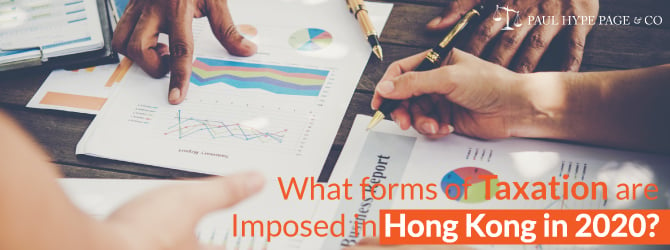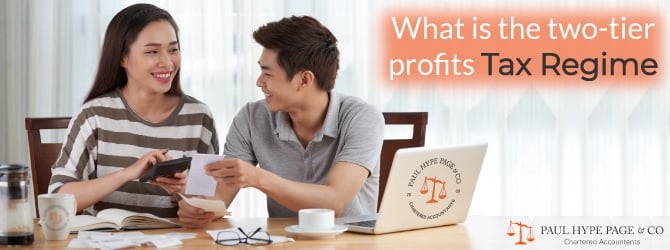Some people use Tax Avoidance and Tax Evasion interchangeably, which is wrong. ‘Tax avoidance’ and ‘tax evasion,’ have the opposite meaning. While tax avoidance is using legal accounting measures and procedures to reduce the amount of tax that a company would have to pay, tax evasion, on the other hand, is illegally avoiding tax payments that can lead you to fines, penalties, or in jail. Tax evasion is an illegal activity as it primarily aims at reducing the amount of taxable income that is availed to the relevant tax authorities by exploiting the tax laws.
What are some common tax evasion practices?
- Underreporting your income amount
- Fabricating the number of profits that your company has made
- Intentionally remitting lesser taxes.
- Claiming inexistent expenses to report less income and thus lower tax returns.
While tax avoidance can knowledgeably relieve you from making huge tax payments, tax evasion can land you in jail.
There is more than one way of presenting and completing a taxable income transaction. The process of tax planning is quite beneficial as it helps in minimizing your tax liabilities. You only need to be careful not to overdo the tax avoidance planning since it can lead to tax evasion when you cross the Hong Kong tax authorities’ line and requirements. Usually, tax authorities scrutinize business owners more strictly than wage earners, even if they earn the same income. It usually happens because the businesspersons have more options to avoid tax payments. Some of the ways that businesspersons can fraudulently avoid remitting exact taxes include:
- Concealing their earnings
- Engaging in accounting regularities
- Engaging in sham transactions like mislabeling a transaction
How is Tax Avoidance done?
Tax avoidance requires advanced tax planning methods. All the tax strategies and structures that aim at keeping taxes lower include either one or more of the following:
- Minimizing taxable income
- Controlling the timing of earnings and expenses
- Maximizing tax deductions and credits
Income and expenses are closely related and will significantly affect the amount of tax that will have to pay. Therefore, you should strive to take full advantage of all the deductions to record a relatively lower taxable income. Secondly, you should determine the tentative tax due and claim every tax credit available for you.
Minimization of Taxable Income
For you to reduce the amount of taxable income, you must understand what deductibles and transactions that are not deductible are. Besides, as a business owner you should be aware of the special rules and guidelines that apply to certain types of deductions like meals and entertainment expenses, automobile expenses, and business travel expenses. Other examples are business use of a personal computer or a private car. Further, you should not underestimate the possibility of purchasing things like personal expenses like health insurance, investing in your retirement plan, and providing benefits like a company car through your business.
The only way that the taxable income is lowered is by maximizing the deductions and expenses. However, you should be careful to make sure that you only deduct the deductible expenses, and then you document them correctly. You should also be careful when making payments for personal expenses from the business proceedings as it is considered a red flag for audits and might result in proof that you are attempting to evade tax obligations. Further, claiming a higher amount of deductions is more likely to impact you and your business later. One example is choosing to make a deduction of all the assets costs on the year of purchase. The move will help reduce the tax obligation for that year, but you will not be able to deduce appreciations when the assets start to depreciate.
Controlling the timing of earnings and expenses
Although it is an excellent habit to grab and implement the ‘do it now’ mentality in business, the timing will do you a great favor when it comes to taxes. Therefore, as a business person, you should carefully consider the timing of various transactions.
Suppose you choose an appropriate tax accounting method and think ahead of acceleration or delays when you record an income or expense. In that case, you will control taxable income every year.
Having a proper plan can help you delay the timing of an event and transactions that raise the tax liabilities. You should note that there are instances that delaying an income can be valuable. If you always maintain a certain tax bracket in all the relevant years, you will likely use your finances for a long time. The other benefit is that conducting a careful plan is essential in delaying transactions that can increase taxes. Delaying a receipt of an income will imply that you will have a period of one year to use the untaxed money that can permit you to reinvest and grow your business.
When Should I Defer Income and Accelerate Deductions?
Avoid this tax planning method if you expect to be in a higher tax bracket next year. The two possible reasons that your tax rate can increase include:
- Increase in income, and
- Increase in taxation rate.
Avoid accelerating deductions when you feel that doing so will only lead to the loss of deductions value. On the other hand, if you foresee that your company income or profits will rise in the coming few years, you should balance a claim on large deductions and spread it over the years.
How can I delay income and accelerate deductions?
You are probably wondering how to do the timing that includes delaying incomes and accelerating deductions. The following are some of the methods you can apply when you are thinking of applying any techniques.
Delay collections: you can delay end-year billings to receive or collect payments after the fiscal year collapses.
Delay dividends: you can delay the dividend payment to your shareholders if there are any to the following fiscal year.
Delay capital gains: if, for instance, you are planning to sell an asset that has an appreciation value, then delaying its sale to the following year implies that you will have to declare the income the next year.
Accelerate payments: the tax basis taxpayers can pre-settle deductible business expenses like taxes, rent, insurance, and interests.
Accelerating the operating expenses, you should also consider accelerating the purchase of equipment or supplies.
Maximizing tax deductions and credits The above activities aim at reducing tax obligations. Carrying out professional accounting activities will significantly help you lower the taxes that your company will be obliged to pay.
Disclaimer: There are varying moments or situations that either acceleration or delay might work. Therefore, you should consider thoroughly evaluating your business before making any accounting decision. The other solution to this dilemma is choosing to work with Paul Hype Page consulting services that will offer professional tax analyses service to help you make viable tax decisions and reduce your tax obligation.
Anti-Tax Avoidance rules in Hong Kong
The legislative council of Hong Kong passed an Inland Revenue tax law that aimed at curbing tax avoidance within its territories. Thus, it implies that Hong Kong has laid down anti-avoidance rules (‘GAAR’) regarding which specific instructions can help in easing the amount of taxable income. Besides, there are various specific tax avoidance rules. Thus, you can only survive if you professionally conduct your accounting services.
Conclusion
Like in any other country, taxation rules are equally rigid in Hong Kong and breaking them will attract penalties. Further, understanding the dynamics and how to minimize the number of tax obligations is a complicated process that requires both experience and accounting skills.
FAQs
Tax avoidance is often viewed as attempting to avoid social obligation which is unethical.
The structure of the taxation system of Hong Kong and its dedication to preserving the secrets of investors makes the country to be popular be referred to as a tax haven state.
The straight answer is that tax evasion is illegal and can lead to legal actions while tax avoidance is the process of using legal means to lessen the amount of tax that one needs to pay.
Tax avoidance is computed by dividing the total expenses by the accounting earnings before tax. Tax avoidance is thus a reflection of the aggregate proportion of accounting income payable relative to the accounting earnings.
Tax avoidance is defined as the legal usage of the tax regime that is acceptable in the country to reduce the amount of tax that one should pay as indicated by Hong Kong’s law.





